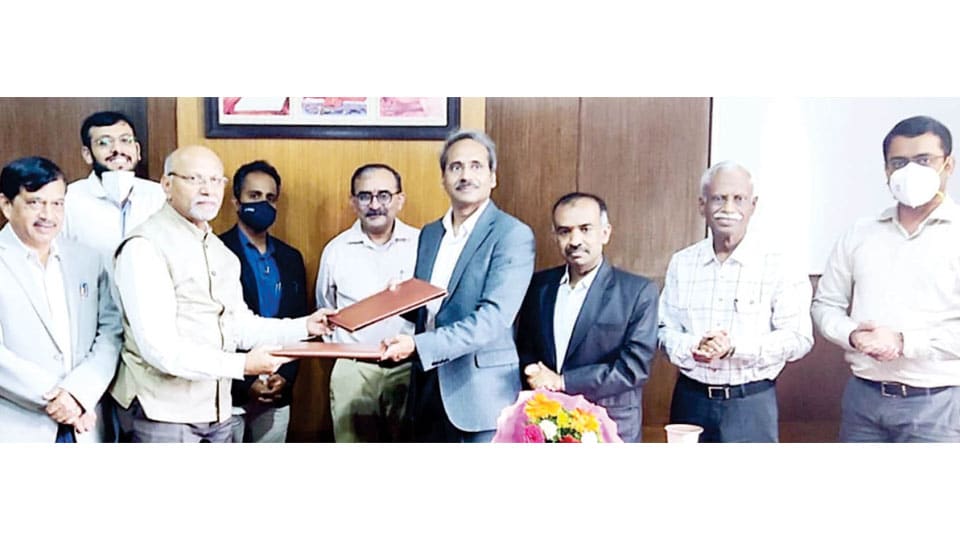To start ‘JSS-Ramaiah Comprehensive Epilepsy Surgery Centre’
Mysore/Mysuru: On 23rd August 2021, Ramaiah Centre of Excellence for Epilepsy of Ramaiah Memorial Hospital, Bengaluru, signed the Memorandum of Understanding (MoU) with JSS Medical College and Hospital, Mysuru, to start the ‘JSS-Ramaiah Comprehensive Epilepsy Surgery Centre’ (JRCEC) in the existing JSS Hospital campus in Mysuru.
The mission of this centre is to improve the health and well-being of epilepsy patients through integration of clinical care, outreach, research and education. The centre of excellence is the need of the hour in order to serve the large population of epilepsy patients. This centre not only ensures the appropriate and timely diagnosis and treatment of long standing epilepsies which have failed the medication but also ensures constant update of the knowledge through research.
The JRCEC offers a range of services at outpatient and inpatient sections including speciality epilepsy and epilepsy surgery clinics, long term VEEG and interdisciplinary meetings. From these speciality clinics, patients will be directed to the most advanced testing methods for the evaluation of epilepsy, including magnetic resonance imaging (MRI), electroencephalography (EEG) and video monitoring.
For those patients who require more intensive testing or attention, the JRCEC also provides inpatient units for examining certain seizure types more closely, changing medications in a monitored setting and presurgical evaluation.
This centre also aims in developing protocols to identify patients with epilepsy and to develop referral networks through primary care physicians to enable patients to obtain specialised treatment, such as epilepsy surgery and advanced electro-diagnosis, within this system. The epilepsy surgery results in long-term seizure freedom for about 60 percent of patients who undergo it though it varies widely depending on the cause and the type of surgery done. Moreover, the published data show that many patients who do not achieve complete seizure freedom after surgery still report quality-of-life gains that are clinically meaningful due to reduced seizure frequency.
Because of sophisticated imaging and new surgical technologies and techniques, the risk of surgery is very low. In contrast, the risks of lifelong uncontrolled epilepsy are well-known and high.
Accidents during seizures sometimes cause fractures, burns, bleeding and miscarriages. Additionally, people with uncontrolled epilepsy have 15 times the risk of sudden unexplained death (SUDEP) compared with the general population and their risk is also much higher than that of people with controlled epilepsy. Hence, every epilepsy patient should undergo evaluation for surgery if it is not controlled with medications.








Recent Comments